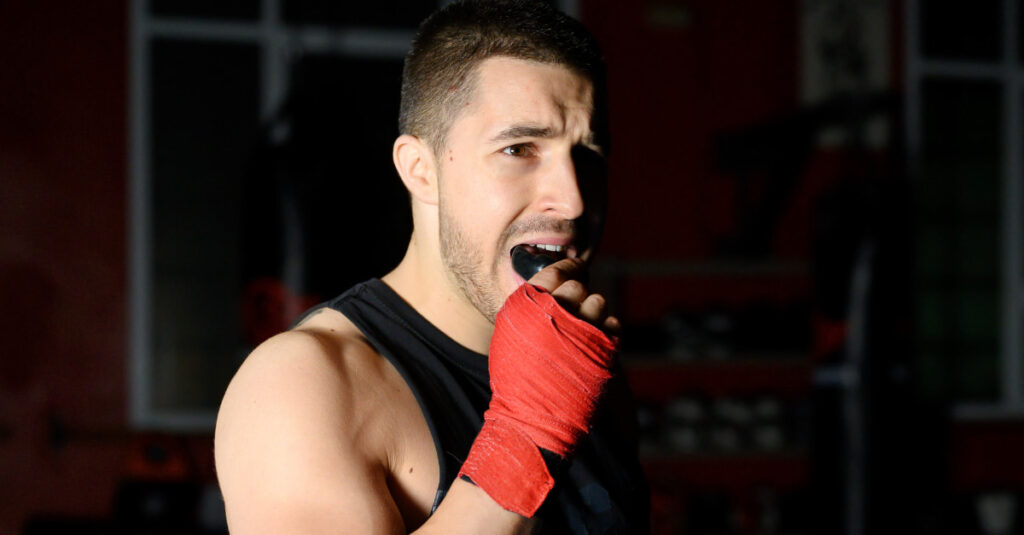January 28, 2020
You know what?
Ironman triathlon is a bit like life in a very interesting way.
I'll explain in a moment.
See, I used to coach a number of serious Ironman competitors, and I also trained for Ironman pretty seriously myself.
Over 2011-2016, I completed 13 Ironman triathlons, including 6 Hawaii Ironman World Championships, 16 Half-Ironman events, and over 90 additional triathlons, logging over 120 races and over 5,100 miles of swimming, cycling, and running. I don't profess that to necessarily be a healthy way to spend the majority of one's time, but it certainly did result in a host of fun adventures, many of which I blogged about on my very first cheesy little blog (which incidentally, still exists here).
Anyways, as is well known in triathlon, Ironman is actually a four discipline sport…
…swimming…
…cycling…
…running…
…and management.
What I mean by that is that because (unlike, say, baseball) Ironman is a sport of attrition—a gritty and gradual wearing down and weakening of one's fuel stores and neuromuscular capabilities over the course of a very long day—improper management of one's resources in the realms of pacing, fueling, and hydration can result in a very unpleasant death march to the finish line, no matter how fit as a fiddle one is on the starting line.
So based on this, the management strategy I also coached to my Ironman athletes and used myself was as follows:
1. Identify the peak aerobic capacity and try to maintain that capacity as consistently as possible for the entire 2.4-mile swim, the 112-mile bike ride, and the first 13.1 miles of the run. To identify peak aerobic capacity (which is pretty much synonymous with one's peak fat burning zone) I would either get my athletes into a metabolic laboratory to test the exact heart rate at which their aerobic capacity occurred, or I would have them perform a lactate threshold test in the comfort of their own gym or home, then subtract about 20 heartbeats from the lactate threshold heart rate to approximate peak aerobic capacity. The beauty of maintaining peak aerobic capacity is that you have at your beck and call tens of thousands of storage fat calories to burn, as opposed to crossing into carbohydrate burning zones and exhausting the relatively finite glycogen stores of just a couple thousand calories while simultaneously accumulated acidic lactate metabolites that slowly begin to shut down the system.
2. During that same period of time, fuel with a slow-burning mixture of ketones or MCT oil, essential amino acids, electrolytes, and small amounts of non-fermentable carbohydrates—a strategy I outline in great detail here and also a strategy that results in extremely stable fuel sources that don't leave one in a sugar and caffeine-infused funk 6, 8, or 10 hours into the race.
3. Finally, and here's the important part, at 13.1 miles, you pull the trigger—meaning that at that point in the race, and no earlier, you tap into all that energy and all those carbohydrates you've been patiently conserving and waiting to burn and all that lactic acid you've been waiting to generate. This is the point at which you go into the pain cave, put on the afterburners, dig deep and gradually progress to your maximum sustainable pace, a pace that would have destroyed you if you'd attempted to sustain it early in the race, but that, if you've properly managed yourself the past several grueling hours, you now have just enough glycogen stores, just enough central nervous system willpower, and just enough muscle contractile capabilities to be able to sustain for roughly the equivalent of the final half-marathon of the Ironman. At that exact point, you toss out all the fancy ketone, fat, and protein-based fuels and instead switch to the pure, glorious, liquid caffeinated sugar: specifically those handy cups of dark, rich, and usually flat Coke that they hand out every mile during the entire run of the Ironman.
The folks who implement this strategy successfully always wound up absolutely crushing their race, achieving their PR, and perhaps most importantly, having an absolutely fabulous memory of their event.
This is because rather than doing as most Ironman triathletes do—engaging in poor body management and experiencing the final few hours of what should be a glorious day instead slogging in a slow and painful death march to the finish line—they would instead pass literally hundreds of their competitors and be running with a big smile on their face all through the final mile, giving high fives to the dense crowds that build up towards that finish line, springing merrily across the finish line, and jumping through the crowds to go hug their family and loved ones at the finish line.
Their competitors, in the meantime, would stumble across the same finish line burning shreds and fumes of energy with legs like Bambi on ice and frownie faces because they simply failed to manage their bodies during the race: they tried to push through the race relying upon fitness alone, didn't pace accordingly and burnt all their matches far too early in the race.
So what the hell does this have to do with life?
Well, in my opinion, us hard-charging, high-achievers who want to go crush our own personal Mt. Everest— whether that be an Ironman triathlon, a Spartan race, a Crossfit competition or any other gritty event that challenges, motivates and inspires us—have two options…
…option one is to push through everything. Train. Train harder. Rinse, wash, repeat. Shove aside friends, family, career, and hobbies to pour in the junk miles and adhere to poorly structured, overly voluminous training plans with inadequate recovery and subpar fueling strategies. When the big day comes around, continue to push through, relying on grit, fitness, and determination alone to try to get you to the finish line.
…option two is to play smart. Train smart. Train smarter. Recover, using science when possible. Adhere to a smartly structured training plan that incorporates elements such as weight and core training, high-intensity interval training, targeted heart rate intervals and other strategies that ensure you have plenty of time to enjoy the rest of your life. When the big day comes around, manage your pacing, fueling, and hydration so that when the part of the race that really counts rolls around, you're prepared for an absolutely amazing finish line experience that you'll remember fondly for the rest of your life.
And if you're not remotely interested in some masochistic sufferfest?
The same rules apply.
Plan ahead as you're living your life.
Are you working 16-hour days and barely seeing your family and friends or enjoying your hobbies, but keeping your fingers crossed that if and when you finally have that big business breakthrough, if it's not too late you'll still have some gas in the tank to be able make up all those missed years?
Are you hitting the gym with no plan, no recovery strategies, no goals, no self-quantification, and no direction, eating a diet that may not be the right diet for you, and just hoping that as you age, your body survives your non-managed fitness and nutrition protocols?
Are you ignoring the importance of challenging your brain regularly with new activities and tiny daily challenges such as crossword puzzles, table tennis, learning an instrument, playing board games, painting, dancing, reading, and learning?
Are you neglecting or de-emphasizing daily self-management protocols that enhance your life, such as gratitude journaling, meditation, breathwork, self-reflection, music, singing, celebration, family dinners, friendships, and relationships at the cost of the one part of you that is the most, special and important—your spirit?
Then mark my words, you'll be crossing the finish line of life on fumes.
So think ahead. Plan. Pace. Care for your body. But also for your brain and your spirit. Manage. Then, when the time comes around when most folks quietly slip into a nursing home, become relegated to a wheelchair, get a knee and hip replacement and sit on the sidelines unable to join in as they watch their grandkids throw the football, you'll be steamrolling happily along with plenty of gas in the tank and plenty of adventures left to live.
So what do you think? Are you managing the Ironman of life? I'd love to hear your thoughts and comments below.














You are my hero. I was dreaming to be an Ironman and may one day my dreams come to try:).
Hi, glad I came across your website. I managed my first iron man back in 2016 on a carb diet with no real issues. in the off season I did a weight training programme with a world personal training group, almost a ketone diet but high in protein, lost a lot of weight and felt good. Since then went back to my old ways. Last year I was planned to do another Ironman but skin cancer got in the way. 2020 I want get back on the Ironman journey and feel the love of crossing the finish line but want to do it on Keto. Would love to get the right advice to do that successfully and achieve great finish line results! Craig, Scotland UK
Interesting and inspiring…I like jogging and hiking. I think the most important is finding a thing that I can love and practice for years. IronMan is too hard for me.
Love that you posted this article as I am on week 12 of Triathlon Dominator right this moment. I’m already feeling much healthier and prepared for my Half IronMan than I did for my last 2.
Excellent Analogy Ben. As a formal triathlete that struggle through his first IRONMAN, I always thoughts it was a great life thematic that whole race. Not only the race, but the path of training as well.
I will go back and read your ost blog on triathlon, and I guess keep that doucement for further review… in case of a maybe futur race !